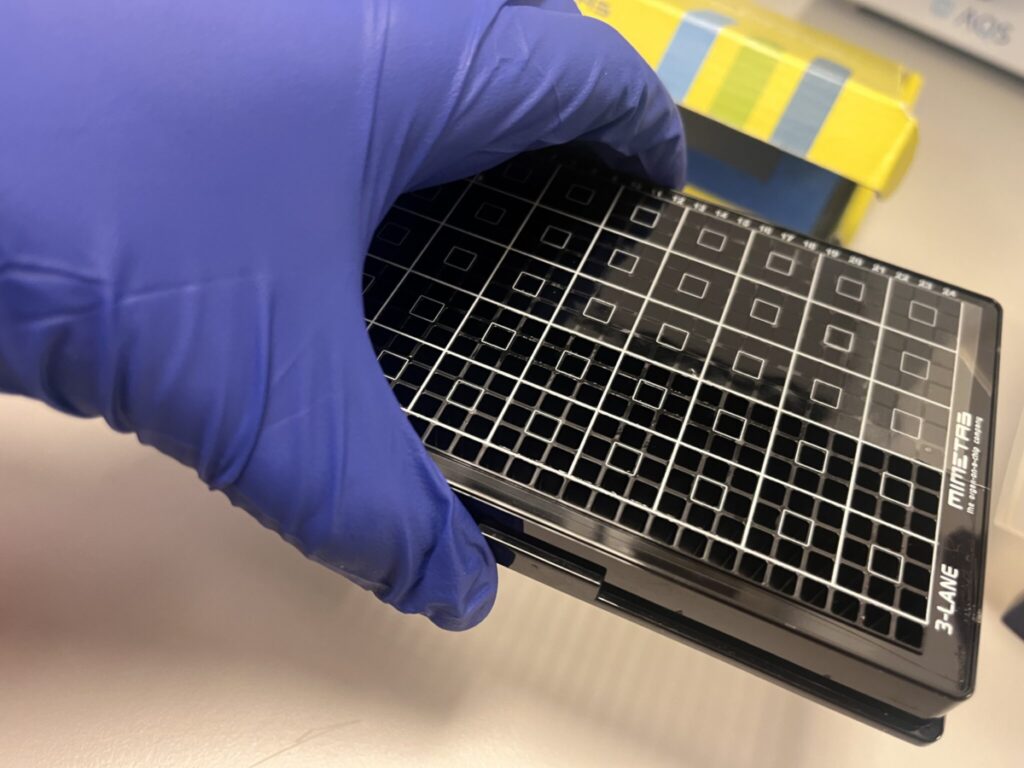UNIVERSITY of Dundee has developed a placenta on a chip, which could transform research into life-threatening conditions in pregnancy.
iPlacenta, developed by experts at Dundee’s School of Medicine, allows researchers to examine the organ in 3D for the first time without risk to a mother or her foetus.
The culmination of four years of research and £3.9 million of funding, the miniature models have been developed from stem cells, perfectly replicating the organ’s workings.

The placenta allows nutrients to pass from the mother to the foetus while allowing waste to return to the mother’s bloodstream.
It offers protection to the unborn baby against bacteria, though viruses can still be transmitted.
However, a failure by the placenta to function correctly can jeopardise the health and life of both foetus and its mother.
The British Heart Foundation states that conditions such as pre-eclampsia affect as many as one in 25 UK pregnancies.
Despite this prevalence, little is known about the workings of the placenta and aspirin and early deliveries are among the limited treatments offered to mothers.
To address this urgent need, Dr Colin Murdoch and his team at Dundee started work on iPlacenta in 2019, working with Dutch 3D tissue model experts MIMETAS.
They utilised stem cells obtained from skin to grow human placentas in their organ-on-a-chip platform, OrganoPlate.
Each plate can hold around 40 micro placentas, which mimic the workings of the full-size organ.
They can be used for testing without jeopardising the health of the mother or foetus, or without resorting to animal testing.
Dr Murdoch, who has led the project, said that the breakthrough technology could revolutionise research into conditions such as pre-eclampsia.
He said: “Just a tiny fraction of the most common drugs used by women in pregnancy have excellent safety data behind them.”
“However, iPlacenta can be utilised by the pharmaceutical industry to research the interaction between drugs and the placenta.
“This allows drug companies to look at the organ in a more physiological format and could have a potentially transformative impact on medical care for pregnant women.”
Gwanaëlle Rabussier, scientist at MIMETAS, said, “Organ-on-a-chip technology is a giant leap forward in understanding the diseases of the placenta.
“Organs are three-dimensional objects, but until now medical research has been conducted in just two dimensions.
“Working on this project has been exciting as it opens tremendous opportunities for unravelling placental mysteries associated with placental barrier drug transfer and pathologies such as pre-eclampsia.
“This contribution to enhancing women’s health is a tremendous source of pride for us.”
Dr Murdoch added, “Research in pregnancy is not as far forward as research into other areas of medical science.
“We still know relatively little about pre-eclampsia, despite its potential to affect every pregnancy.
“At present, cell lines from cancer are used to examine diseases of the placenta but this is not entirely appropriate.
“Obtaining placentas at the early stage that we need to study them is incredibly hard, and that is where iPlacenta can address that need.”

